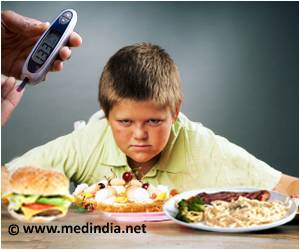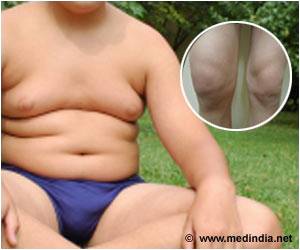Though healthy and overweight preschoolers’ parents are usually careful of dietary risk factors that aggravate childhood obesity, it’s still inadequate to result in meaningful weight change.

The study also illuminates the gap between what parents know about the root causes of obesity and what they can actually do to maintain healthy diets for preschoolers, a group generally overlooked in obesity research and prevention.
"When it comes to obesity prevention, the focus tends to be on school-age children and teens, but a growing body of research has found a link between poor life-long health and being overweight as early as 2 years of age," Raquel Hernandez, lead investigator of the study, said.
The Centers for Disease Control and Prevention define children with a body-mass index at or above the 85th percentile for their age as overweight.
One-third of the 150 children in the current study were overweight, most from low-income urban homes, and more than 90 percent African-American.
"Childhood obesity is a complex, multi-factorial phenomenon but our findings reveal that, for the most part, lack of parental awareness of nutritional risk factors is not one of the drivers behind it," Hernandez said.
Advertisement
The study found minimal to non-existent differences between the two groups. One important risk factor remained seriously overlooked by parents in both groups: physical activity.
Advertisement
Recent studies have shown that few preschoolers achieve healthy levels of activity, and most remain sedentary 85 percent of the time, the investigators say.
The results of the study suggest that parents undervalue physical activity in an age group often perceived as "active enough", and alerting parents to the risks of inactivity is critical in obesity prevention, according to Janet Serwint, M.D., of Johns Hopkins Children's Center.
"The importance of physical activity and age-appropriate exercise is one area where we could step up educational efforts," Serwint said.
"Paediatricians should discuss specific and age-appropriate activity goals during well-child visits," she said.
Nearly 40 percent of parents in both groups identified buying and preparing unhealthy food as the top contributor to weight problems at an early age.
Similar numbers of parents in both groups (23 percent and 31 percent) cited using food as a reward for good behaviour as a risk factor for weight problems.
A nearly equal proportion of parents in both groups (25 percent and 23 percent) said that asking the child to finish food on the plate was the most critical contributor to overweight or obesity.
Importantly, one-third of parents from both groups (35 percent and 33 percent) identified lack of control over the child's food choices as the top barrier to healthy weight-a notable finding, the researchers say, given that most preschool children spend most of their waking hours in daycare or with alternate caregivers.
"Daycare providers, grandparents and others involved in a child's care are often just as important in achieving healthy-weight goals as the parents themselves, and parents should be encouraged to provide specific dietary and activity instructions to these influential caregivers," Hernandez added.
The study has been published online in the journal Clinical Pediatrics.
Source-ANI















